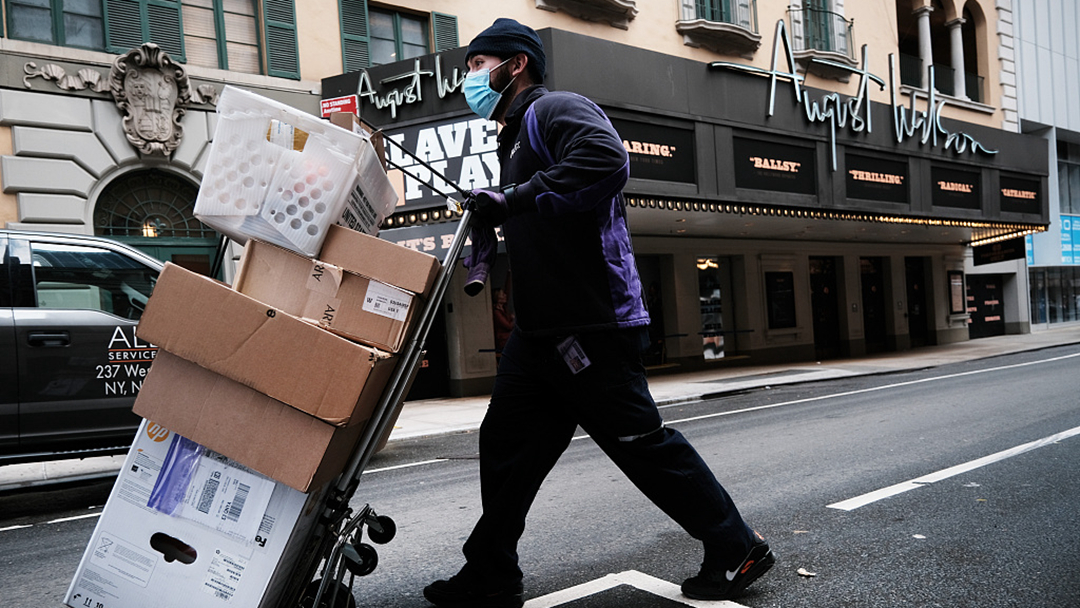
A worker makes deliveries in New York, U.S., December 6, 2021. /CFP
A worker makes deliveries in New York, U.S., December 6, 2021. /CFP
With the U.S. government set to release data expected to show prices rising even higher, President Joe Biden is attempting to downplay the reading and highlight recent improvements not listed in the report.
The U.S. consumer price index for November is forecast to rise by 6.8 percent compared with the same month last year, a Reuters poll of economists showed, overtaking a 6.2 percent increase in October, which was the fastest gain in 31 years.
The inflation wave is a political liability for Biden, who has seen his public approval ratings sink as prices have spiked.
The president attempted to get ahead of the data, releasing an unusual statement on Thursday saying the report will not encompass recent declines in prices of energy and used cars, two main drivers of the high inflation readings seen this year.
Biden noted that gasoline prices have begun to come down nationally since the latest inflation data was collected.
Prices have risen this year in the U.S. due to a variety of factors. Mickey Levy, chief economist covering the Americas and Asia at Berenberg Capital Markets, pointed to supply bottlenecks, the Federal Reserve's low interest rate policies and pandemic recovery legislation enacted under Biden and his Republican predecessor Donald Trump.
"The Biden administration fears the negative political fallout of the impact of higher inflation on households and is trying to defer the blame on special factors," Levy said.
Federal Reserve Chair Jerome Powell said last week the U.S. central bank needed to be ready to respond to the possibility that inflation may not recede in the second half of next year as most forecasters currently expect.
(With input from AFP, Reuters)

